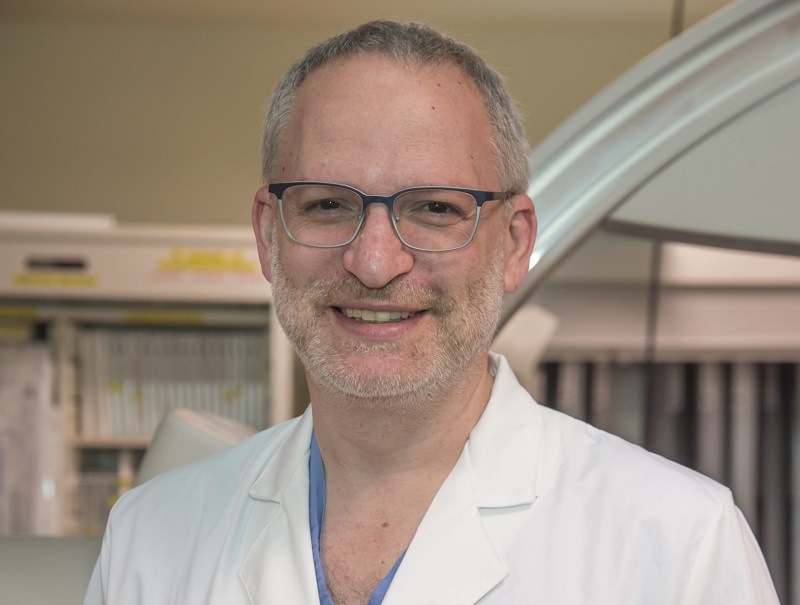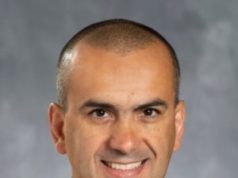 Patients with tricuspid regurgitation (TR) who received a Pascal transcatheter valve (Edwards Lifesciences) experienced significant improvements in blood flow through the heart and in quality of life at one year, research presented during a late-breaking trial session at the American College of Cardiology’s annual scientific sessions (ACC 2022, 2–4 April, Washington DC, USA) has concluded. The research was also published in the journal Circulation.
Patients with tricuspid regurgitation (TR) who received a Pascal transcatheter valve (Edwards Lifesciences) experienced significant improvements in blood flow through the heart and in quality of life at one year, research presented during a late-breaking trial session at the American College of Cardiology’s annual scientific sessions (ACC 2022, 2–4 April, Washington DC, USA) has concluded. The research was also published in the journal Circulation.
“At one year of follow-up, the repair procedure appears to be safe and significantly reduced the severity of patients’ tricuspid regurgitation and improved their ability to function in daily life, maintaining gains that we previously saw at 30 days of follow-up,” said Adam B Greenbaum (Emory University School of Medicine, Atlanta, USA).
The study offers further validation for transcatheter edge-to-edge repair, a minimally invasive approach to the treatment of patients with the disease, Greenbaum said.
Patients with tricuspid regurgitation are commonly treated with diuretics, drugs that are also used to treat high blood pressure. Surgery to repair or replace a poorly functioning tricuspid valve is often done at the same time a patient undergoes surgery for a problem on the left side of the heart. Minimally invasive options are needed to treat tricuspid regurgitation, Greenbaum said, as most patients with the condition are older and may have other health problems that make them poor candidates for open-heart surgery.
The CLASP-TR study is a feasibility study of the investigational Pascal transcatheter repair system for TR. The Pascal implant consists of a central spacer and adjacent paddles and clasps that attach the implant to the native leaflets to reduce regurgitation. The central spacer helps fill the regurgitant orifice and minimise stress on the leaflets. The clasps can be actuated either simultaneously or independently when clasping the leaflets.
The study endpoints included a composite of major adverse events at 30 days (death due to cardiovascular disease, heart attack, stroke, kidney failure, severe bleeding); evidence on an echocardiogram of a reduction in backward blood flow; and death from any cause, distance walked in six minutes and scores on two measures of heart failure severity.
A preliminary report published in February 2021 found that at 30 days of follow-up, the repair system substantially reduced tricuspid regurgitation, produced few adverse events, and significantly improved patients’ ability to function, exercise capacity and quality of life. The current study reports results after one year of follow-up.
A total of 65 patients (average age 77, 55% women) received the investigational device, 70% of whom had tricuspid regurgitation that was rated “massive” or “torrential” (the two highest grades of severity on a five-point scale) despite treatment with diuretics. In addition, most had other health problems that made them poor candidates for surgery, including atrial fibrillation (AF), liver or kidney disease and pulmonary hypertension.
The COVID-19 pandemic affected the researchers’ ability to obtain one-year follow-up data for all treated patients, Greenbaum said. For example, some patients completed follow-up questionnaires that could be done remotely but did not complete tests that had to be done at the hospital, such as the echocardiogram and six-minute walk test. In addition, several patients died (although none died because of the repair procedure). In a few patients, the procedure was unsuccessful because the device failed to attach to the flaps in the tricuspid valve; and a few patients were lost to follow-up.
Ultimately, one-year follow-up results were available for 49 patients. Seven patients (10.8%) died and 12 (18.5%) were rehospitalised for heart failure. These results compare with an expected one-year mortality rate of about 30% for patients with tricuspid regurgitation, Greenbaum said. Among 36 patients with available data at one year, all achieved a reduction of at least one grade in the severity of their tricuspid regurgitation; 75% saw a reduction of at least two grades; and 86% achieved an overall grade of moderate or less. Eleven patients (16.9%) experienced a major adverse event. Significant improvements were seen in heart failure severity, the six-minute walk test and patient-reported quality of life.
Longer follow-up is needed to determine how well the device continues to perform and how well patients do at two years or five years of follow-up, Greenbaum said. Limitations of the study include low patient treatment numbers and an absence of a comparison group. Greenbaum said a randomised trial is now underway that will compare outcomes for patients treated with the investigational device and patients who receive optimal medical therapy with diuretics.












